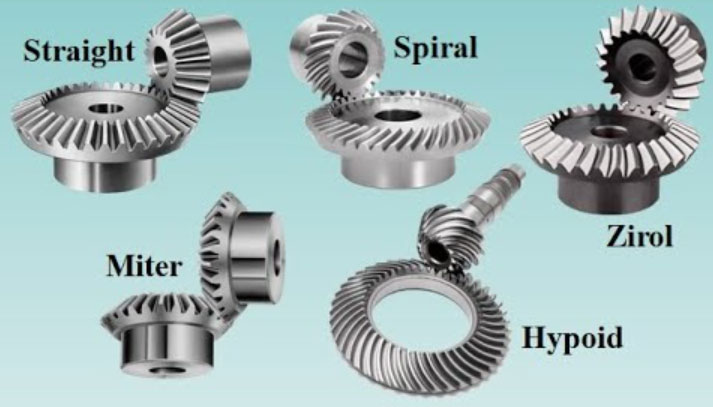Material selection plays a vital role in determining the performance, durability, and reliability of bevel gears. The chosen material must possess specific properties to withstand the operating conditions, loads, and stresses encountered in gear applications. Here are some key considerations regarding material selection and its impact on the performance of bevel gears:

- Strength and Hardness: Bevel gears are subjected to high loads and contact stresses during operation. Therefore, the selected material should have sufficient strength and hardness to withstand these forces without deformation or failure. High-strength alloy steels, such as carburizing steels (e.g., 8620, 9310), are commonly used for bevel gears due to their excellent combination of strength and hardness.
- Wear Resistance: Gears experience sliding contact and relative motion, which can lead to wear. The material should have good wear resistance to minimize tooth surface damage and ensure long-lasting performance. Heat-treated alloy steels with a high surface hardness, such as through-hardened steels or case-hardened steels, are preferred for their wear-resistant properties.
- Fatigue Strength: Bevel gears are subjected to cyclic loading, which can lead to fatigue failure if the material does not have sufficient fatigue strength. The selected material should have good fatigue resistance to withstand the repeated stress cycles. Steels with high fatigue strength, such as alloy steels, are commonly used for bevel gears.
- Toughness: The material should exhibit good toughness to resist the formation and propagation of cracks, as well as absorb impact loads without fracture. Toughness is particularly important for gears that operate under shock or dynamic loads. Alloy steels with appropriate heat treatments typically provide a good balance of strength and toughness.
- Corrosion Resistance: In applications where bevel gears are exposed to moisture, chemicals, or corrosive environments, selecting a material with good corrosion resistance is essential to prevent degradation and premature failure. Stainless steels or corrosion-resistant alloys may be suitable choices for such applications.
- Machinability: The material should be easily machinable to facilitate the manufacturing process of bevel gears. A material with good machinability enables efficient production and reduces manufacturing costs. Steels with controlled alloying elements and optimized heat treatments are often chosen for their favorable machinability characteristics.
- Cost Considerations: Material selection should also take into account cost factors. The chosen material should provide the required performance characteristics at an acceptable cost. Balancing performance requirements with budgetary constraints is crucial in material selection.
It’s important to note that material selection for bevel gears is a complex process and should consider the specific application requirements, operating conditions, and design constraints. Engineers often consult material databases, standards, and guidelines to identify suitable materials for bevel gear applications. Collaborating with material specialists and gear manufacturers is beneficial to ensure the optimal selection of materials that meet the desired performance and durability goals for bevel gears.
